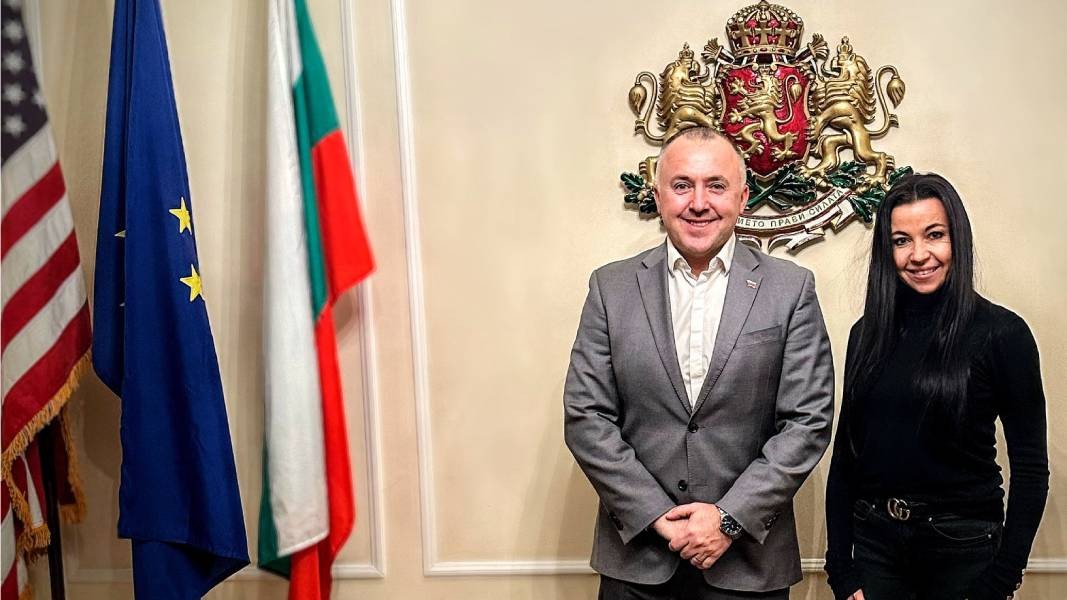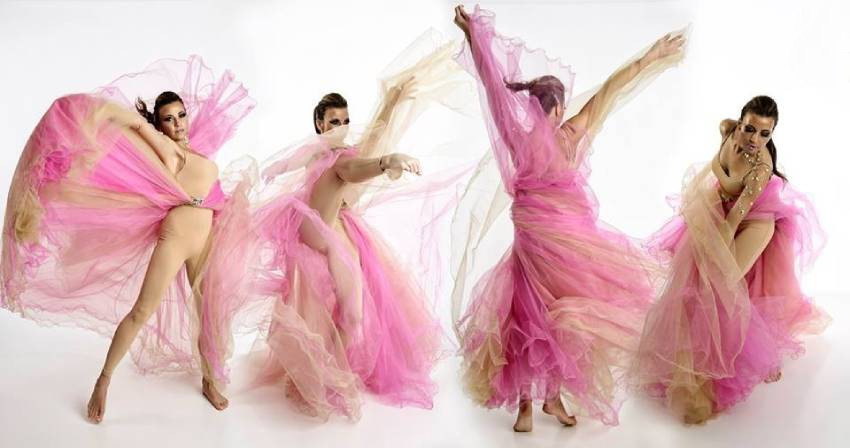"United We Stand" - Bulgaria's national motto - will be put into action on May 8 by the Bulgarian community in New York City, amid the realities of the times and the distance from home. At 7 pm local time, the Bulgarian Consulate General and the NYC Bulgarian Professionals Network will host the first in a planned series of entrepreneurial discussions among the Bulgarian diaspora in the United States.
The event will focus on how - and to what extent - Bulgarian clubs focused on traditional sports, culture, dance and the arts contribute to shaping the image of Bulgaria in the US.
Special guests at the event, to be held at the Bulgarian Consulate General, will include Silviya Taseva, co-founder and head coach of the Manhattan Rhythmics rhythmic gymnastics club, and Elissaveta Iordanova, founder of the Gorana Dance folklore ensemble. They will share their experiences of building and sustaining financially viable cultural organisations in New York.

"It will be a very exciting event because it's the first of its kind in the series," said Silviya Taseva in an interview with Radio Bulgaria. Her personal story is one of the inspirations behind the launch of the initiative.
“Here’s how the whole idea came about – a few months ago, I happened to visit the Bulgarian Consulate, and during a conversation with Consul General Angel Angelov, he was genuinely impressed by my story,” says Silviya Taseva. “I told him how I founded my rhythmic gymnastics club, the challenges we faced, the successes we’ve achieved. How a Bulgarian woman can be truly valued here for what she brings to the table. How someone like me can be put on a pedestal, not just for my personal story, but for where I come from and what I can contribute to sports in the United States. When someone so sincerely appreciates your work and what you have to share, it becomes a message. And you in turn become a messenger - an ambassador - of your homeland.

Interestingly, Silviya never set out to pursue the American dream. On the contrary, after years of intense training and competition as part of Bulgaria's national rhythmic gymnastics team under legendary coach Neshka Robeva, and later as a member of one of the country's top dance troupes, the last thing she wanted was more rigorous routines and gymnasiums. "I came to the USA for a short holiday," Taseva recalls. That "short stay" has now lasted almost 20 years. And it was rhythmic gymnastics that found her again - across the ocean - through numerous job offers from clubs eager to work with her.

Silviya accepted one of the offers and started teaching in Brooklyn. Later, she became head coach of the Puerto Rican national rhythmic gymnastics team, gaining experience, getting to know the local culture, and working each day to make rhythmic gymnastics more familiar and accessible to American children. With growing success, knowledge and confidence, she decided ten years ago that it was time to open her own club in the heart of New York City. She named it Manhattan Rhythmics.
"But why there and not at home?" some might ask. Silviya answers simply: "It wasn't part of any plan - it's just the way life unfolded".

"Why did I start teaching rhythmic gymnastics in the USA? Because what I saw here - the appreciation I received from people, the respect they had for where I came from and what I had to offer - really moved me," says Silviya."And when your professional work is genuinely valued, your desire to improve only grows stronger. I think that's what happened to me," she concludes with a smile - her own truth about a fulfilled non-dream in America, lived by a Bulgarian girl.

It's one of many stories that will be told during the entrepreneurial meetings at the Bulgarian Consulate General in New York. Radio Bulgaria will continue to bring you more inspiring voices from the panels and their journeys.
An event dedicated to the Bulgarian oil-bearing rose (rosa Damascena) will take place on September 19 in Ireland, BTA reports. Its organizer is the Embassy of Bulgaria in the country. “We are pleased to invite you to a unique journey of sound..
The sweet temptation "Garash" is a cake whose history is very curious and deserves the attention of both those interested in history and lovers of its undeniable taste qualities. Its creator is the Austro-Hungarian Kosta Garash. It is believed..
For yet another year, lovers of freshly prepared lyutenitsa will be able to try this delicious culinary masterpiece at the traditional festival, where it is the main character - "Kurtovo Konare Fest". A rich musical program, various workshops, a film..
Stara Zagora is hosting the first U.L.I.C.A. – Street Fest, the organisers from the municipal enterprise Art Stage announced. The event will take..
The sweet temptation "Garash" is a cake whose history is very curious and deserves the attention of both those interested in history and lovers of its..
For yet another year, lovers of freshly prepared lyutenitsa will be able to try this delicious culinary masterpiece at the traditional festival, where it..

+359 2 9336 661
